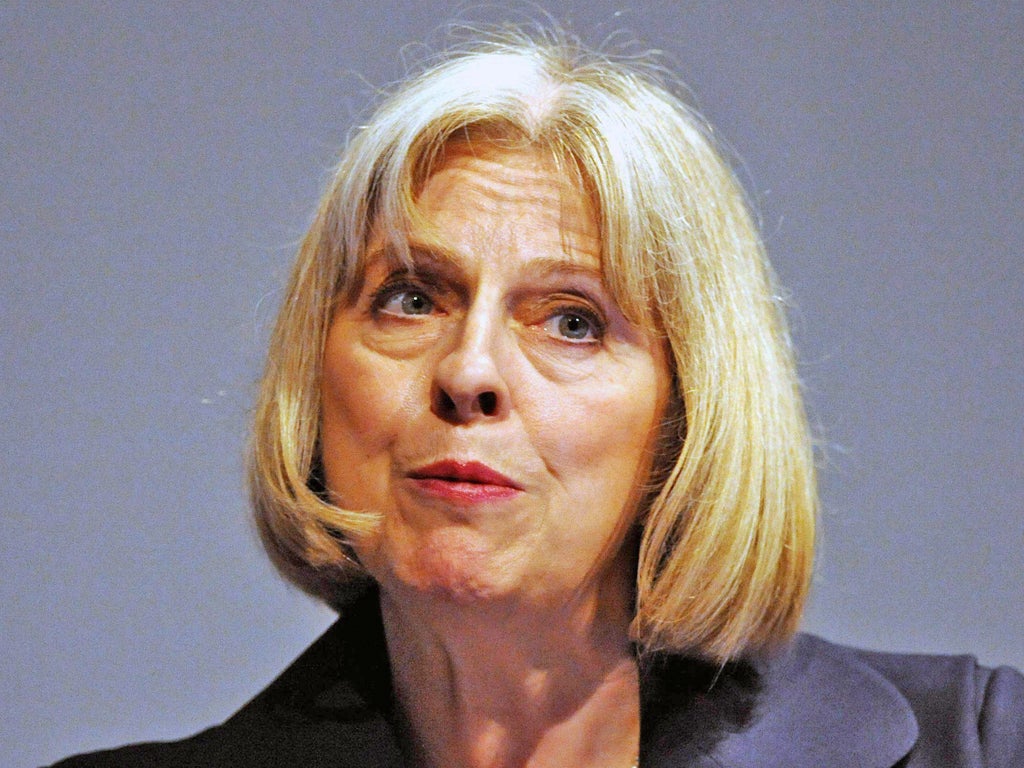Theresa May to visit Jordan to discuss Abu Qatada deportation

Your support helps us to tell the story
From reproductive rights to climate change to Big Tech, The Independent is on the ground when the story is developing. Whether it's investigating the financials of Elon Musk's pro-Trump PAC or producing our latest documentary, 'The A Word', which shines a light on the American women fighting for reproductive rights, we know how important it is to parse out the facts from the messaging.
At such a critical moment in US history, we need reporters on the ground. Your donation allows us to keep sending journalists to speak to both sides of the story.
The Independent is trusted by Americans across the entire political spectrum. And unlike many other quality news outlets, we choose not to lock Americans out of our reporting and analysis with paywalls. We believe quality journalism should be available to everyone, paid for by those who can afford it.
Your support makes all the difference.Home Secretary Theresa May will visit Jordan in the near future as the Government continues to try to find ways to deport radical cleric Abu Qatada, she said today.
Qatada has been released from jail under strict bail conditions while the Government seeks assurances that evidence gained through torture would not be used in any trial against him if he were sent back.
But the 51-year-old cleric, once described by a judge as Osama bin Laden's right-hand man in Europe, could be freed from his bail terms in just three months if Mrs May fails to show significant progress is being made in the talks.
Mrs May said: "The Home Office Minister for Crime and Security, James Brokenshire MP, has led useful discussions with the Jordanian authorities and talks with officials will continue.
"The UK and Jordan remain committed to ensuring that Abu Qatada must face justice and are pursuing all options with regard to his deportation and it is my intention to travel back to continue those negotiations shortly."
Qatada was released from Long Lartin high-security jail in Evesham, Worcestershire, on Monday after applying for bail when human rights judges in Europe ruled he could not be deported without assurances from Jordan that evidence gained through torture would not be used against him.
The Strasbourg-based European Court of Human Rights ruled that sending Qatada back without such assurances would be a "flagrant denial of justice".
Mr Justice Mitting, chairman of the Special Immigration Appeals Commission, then ruled last week that Qatada should be bailed after six-and-a-half years in custody and gave the Home Secretary three months to show significant progress had been made in the talks or risk Qatada being freed without conditions.
Mr Brokenshire visited the Jordanian capital Amman for talks this week, and Mrs May said the discussions "will continue".
Last week, Prime Minister David Cameron told King Abdullah of the "frustrating and difficult" position Britain was in over its efforts to deport the Islamist radical.
Ayman Odeh, the Jordanian legislative affairs minister, has said the country passed a constitutional amendment in September to ban the use of evidence obtained through torture.
But Prince El Hassan, the uncle of Jordan's King Abdullah, would not give outright assurances yesterday that Qatada would get a fair trial if he were sent back.
Qatada was let out under some of the toughest conditions imposed since the September 11 terror attacks.
He is free to leave his London home for just two hours a day, is banned from taking his youngest child to school, and cannot talk to anyone who has not been vetted by the security services.
He is also banned from visiting mosques, leading prayers, giving lectures or preaching, other than to offer advice to his wife and children at his home.
Qatada, also known as Omar Othman, was convicted in his absence in Jordan of involvement with terror attacks in 1998 and has featured in hate sermons found on videos in the flat of one of the September 11 bombers.
Since 2001, when fears of the domestic terror threat rose in the aftermath of the attacks, he has challenged, and ultimately thwarted, every attempt by the Government to detain and deport him.
PA
Join our commenting forum
Join thought-provoking conversations, follow other Independent readers and see their replies
Comments